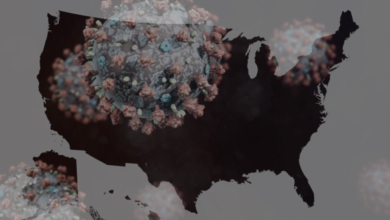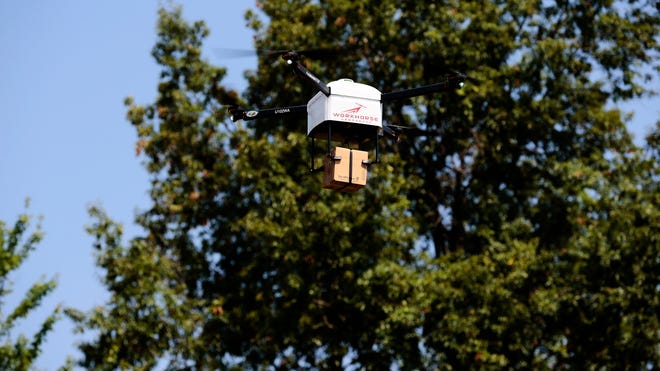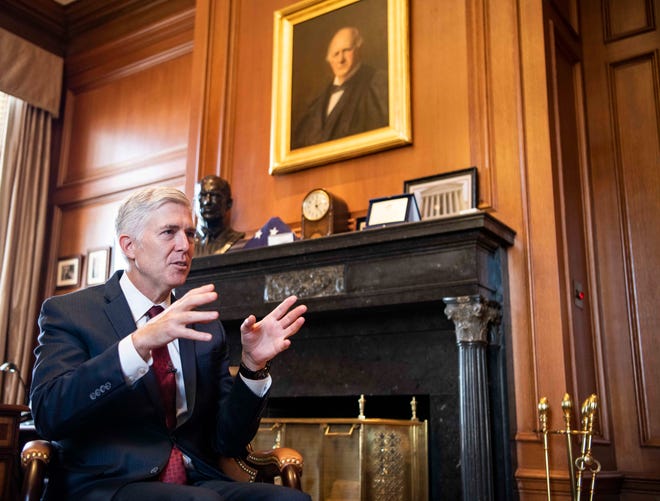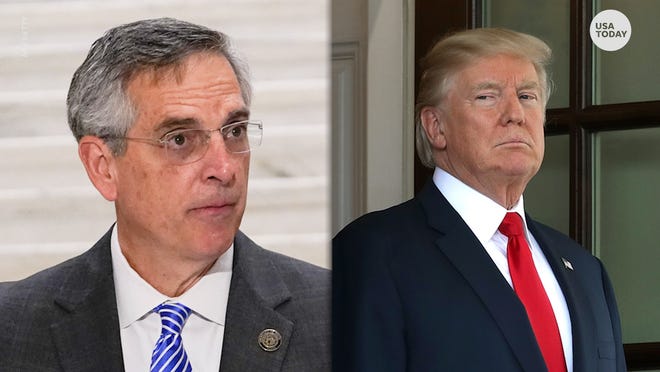WASHINGTON — Former President Donald Trump’s second impeachment trial closed on Saturday with an overwhelming party-line vote to acquit Trump, after the trial was thrown for a loop in the morning with confusion over potential witnesses.
The Senate voted 57-43 resulting in Trump's acquital., with just seven Republicans siding with all Democrats and independents, falling short of the 67 votes needed to convict.
The vote came after confusion on how to proceed after the Senate unexpectedly voted to call witnesses. The move would have lengthened the trial, but was reversed after both sides agreed to instead enter the congresswoman's statement into evidence. Senators then listened to closing arguments.
House impeachment managers and Trump’s lawyers argued their cases over three days, with the prosecution arguing there is clear evidence Trump incited the violent Capitol riot on Jan. 6 and the defense saying the president’s political speech was protected by the First Amendment.
Live impeachment updates:Senate votes 55-45 to subpoena witnesses in Trump trial, likely extending proceedings
Trump acquitted with only 7 Republicans voting to convict
Trump was acquitted and will be free to run for president again in 2024 after the majority of Republicans sided with him in his impeachment trial. Seven Republicans broke ranks, but it was not enough to succeed in convicting Trump.
"My deepest thanks as well to all of the United States Senators and Members of Congress who stood proudly for the Constitution we all revere and for the sacred legal principles at the heart of our country," the former president said in a statement.
More:Senate acquits Trump in historic second impeachment trial over Capitol riot
Because Trump was not convicted, there will not be a second vote to bar him from future office.
In Trump's first impeachment trial, when Republicans were in the majority. Only one Republican senator voted to convict Trump on one of the two articles of impeachment. Sen. Mitt Romney, R-Utah, broke with his party in January 2020 to convict Trump of abusing his power over his alleged pressure campaign against Ukraine's leader.
The 7 GOP senators who voted to convict Trump
The seven Republicans who stood against the former president in their vote were:
- Sen. Richard Burr, R-N.C.
- Sen. Bill Cassidy, R-La.
- Sen. Susan Collins, R-Maine
- Sen. Lisa Murkowski, R-Alaska
- Sen. Mitt Romney, R-Utah
- Sen. Ben Sasse, R-Neb.
- Sen. Pat Toomey, R-Penn.
“The president promoted unfounded conspiracy theories to cast doubt on the integrity of a free and fair election because he did not like the results,” Sen. Richard Burr, R-N.C., said in a statement explaining his vote. “When the crowd became violent, the President used his office to first inflame the situation instead of immediately calling for an end to the assault.”
A surprise vote to call witnesses
Senators started the day by voting 55-45 to allow for the calling of witnesses and the subpoenaing of additional documents despite earlier indications from both sides that there would be no need for further testimony, surprising both sides of the aisle.
Lead House manager Rep. Jamie Raskin, D-Md., said revelations Friday about House Minority Leader Kevin McCarthy’s conversation with Trump during the riot on Jan. 6 forced the managers to request testimony from Rep. Jaime Herrera Beutler, R-Washington.
Beutler issued a statement saying McCarthy, R-Calif., urged Trump to call off the riot, but that Trump replied indifferently.
Chaos, confusion and anger:What you couldn’t see on the Senate floor
Trump’s defense team said if witnesses were going to be called, they would also call witnesses such as House Speaker Nancy Pelosi and D.C. Mayor Muriel Bowser to ask about security. Michael van der Veen, one of Trump’s lawyers, in a heated speech before senators said he would want to depose “at least over 100” people. A Trump aide later said there could be as many as 301 proposed depositions.
"There’s really only one person the defense needs to interview and that’s their own client," Raskin responded. "Why did he not defend the country after he learned of the attack?"
One surprise vote came from Sen. Lindsey Graham, R-S.C., who after the vote had been taken requested to change his vote and supported calling witnesses. He sided with Democrats and a several other Republicans in voting yes.
"If you want a delay, it will be a long one with many, many witnesses," Graham had tweeted earlier Saturday.
Trial proceeds without testimony after compromise
After the vote to call witnesses, Senate Majority Leader Chuck Schumer, D-N.Y., called for a recess so lawmakers could discuss what would happen next, including what would be put in a required resolution governing the details of how witnesses would be called.
However, Trump's lawyers and the impeachment managers reached a compromise to allow Herrera Beutler's statement to be entered into the record, but would forego calling any witnesses from either side. The trial proceeded to closing arguments as originally was expected.
Impeachment managers close with argument about what Trump knew and when
The prosecution closed its arguments on Saturday with a recap of the evidence it had presented earlier this week, highlighting Trump's "unconscionable" conduct and arguing that Trump was aware of the consequences of his actions and rhetoric.
Raskin argued that Trump's derogatory tweet against former Vice President Mike Pence issued amid the riot, and his refusal to appeal to his supporters to call off the attack, which was requested by McCarthy, made the former president's offense worse.
“That conduct is obviously part and parcel of the constitutional offense that he was impeached for, namely incitement to insurrection,” Raskin said, pushing back against the defense's argument that anything Trump did after the riot is not incitement. "That is continuing incitement to the insurrection."
Rep. David Cicilline, D-R.I., another impeachment prosecutor, refuted the defense's previous argument that "At no point was the president informed the vice president was in any danger."
Cicilline walked senators through a timeline of the events of Jan. 6 and argued that it is "inconceivable" that Trump would not have been made aware of Pence's situation and the situation at the Capitol, given his resources as president and the widespread reporting of the events.
Trump's lawyers say he never encouraged violence
The defense team closed by arguing four points: The Senate does not have the jurisdiction to try a former president, that the House did not present multiple claims against Trump as separate articles of impeachment, that Trump was not afforded due process, and that he is protected by the First Amendment.
Van der Veen acknowledged what he called "heinous" violence that took place at the Capitol, and said he and his client condemn it. But he said Trump was not the cause of it.
"What took place at the U.S. Capitol on Jan. 6 was a grave tragedy," van der Veen said. "No matter how much truly horrifying footage we see of the conduct of the rioters, how much emotion has been injected into this trial, that does not change the fact that Mr. Trump is innocent of the charges against him."
He also incorrectly asserted that the riot involved not only Trump’s supporters but those on the other side of the political spectrum, which has been widely debunked.
Van der Veen implored senators to not “indulge the impeachment lust” from Democrats, urging senators to focus on unity and on pursuing other pressing matters for the country.
Laughter and objections lead to admonishment from Leahy
Sen. Patrick Leahy, D-Vt., who is presiding over the trial in his role as president pro tempore of the Senate, took some moments during the final day of Trump's impeachment trial to call for civil discourse in the chamber.
On Saturday morning as van der Veen criticized the House managers' procedure, senators began laughing when the defense lawyer insisted that any depositions should be done in his personal injury law office in Philadelphia, and heatedly argued against the use of Zoom to depose witnesses via internet.
Van der Veen shot back at the chamber, "I don't know why you're laughing."
More:Leahy scolds Senate for lack of civility, laughing at Trump lawyer
Leahy reminded senators and representatives from both sides of the words of Chief Justice John Robert's words when he presided over Trump's first impeachment trial, calling for civility.
"I would remind everybody, as Chief Justice Roberts noted Jan. 21, 2020, citing the trial of Charles Swayne in 1905: All parties of the chamber must refrain from using language that is not conducive to civil discourse," Leahy said.
In another moment, Leahy told Trump’s defense attorney Michael Van der Veen to sit down after he objected to a part of the House managers’ closing argument, arguing that a tweet read was not part of the evidence previously introduced.
Van der Veen had yelled "Objection! This is not in evidence."
"The counsel will sit down. The chair has no way of knowing what material is evidence or not," Leahy said.
Contributing: Bart Jansen, Christal Hayes, Nicholas Wu, Savannah Behrmann
Source link







